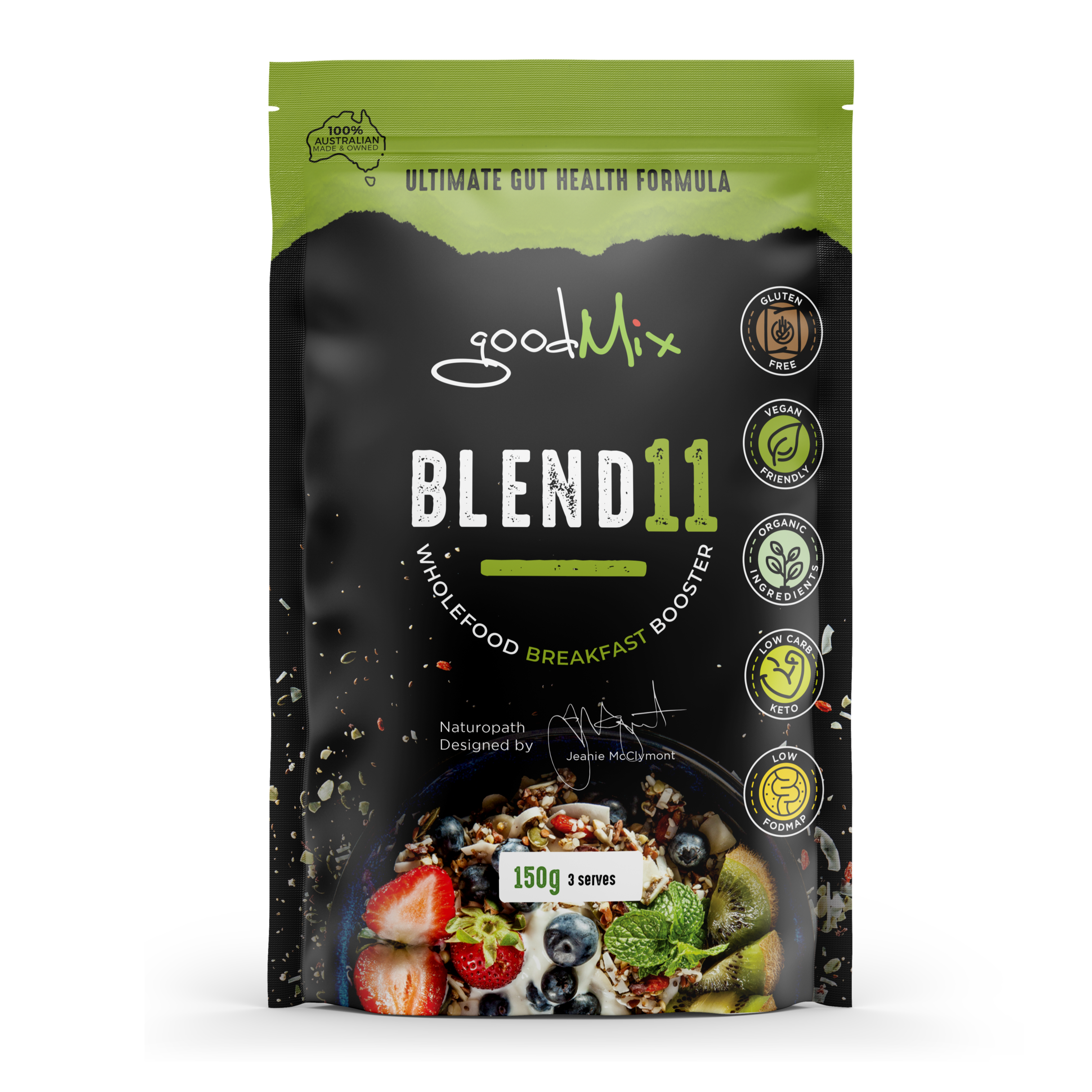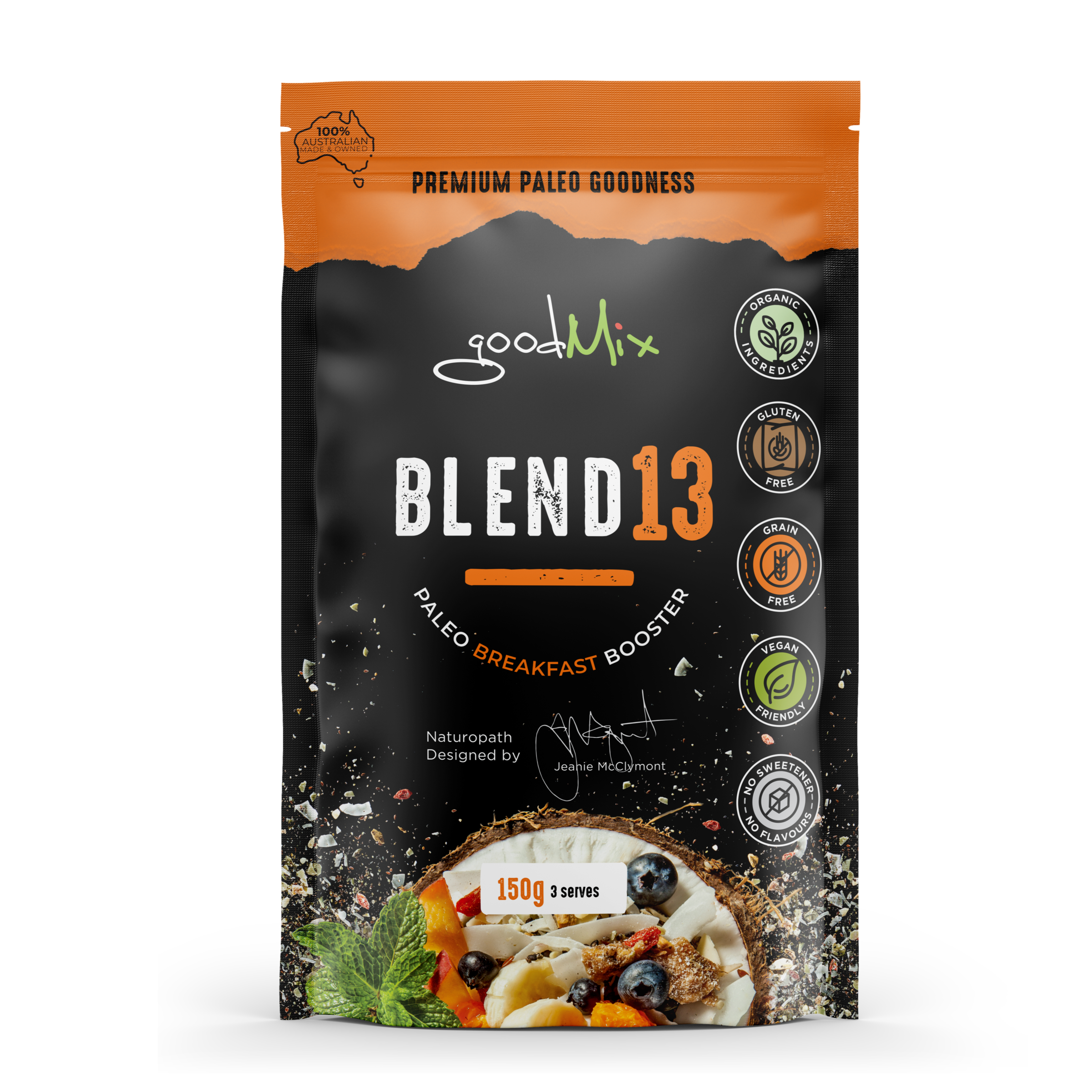Anxious teens will often ‘self-medicate’ with pharmaceuticals, illegal drugs, alcohol, comfort food or engage in other forms of escapism to help them deal with the complex emotions they have going on inside.
To prevent this, there are loads of easy ways we can support their mental health during a time when their bodies are demanding so much physically & life can be tricky emotionally.
1. Protein:
Helps keep blood sugar & energy levels stable (blood sugar fluctuations can aggravate / cause moodiness - know anyone who gets ‘hangry’ when they have to wait too long for food?). Amino acids from protein also supply the building blocks our body needs to make many of our neurotransmitters, ie serotonin, dopamine, GABA. These chemicals strongly influence moods. Lack of protein will definitely contribute to anxiety, so make sure this box is ticked for healthy growth, strong immunity & stable moods in your teen.
2. Good fats:
Typical teens tend to consume a LOT of nasty inflammatory fats (fried foods, fast foods, crisps, pastries, bakery foods etc), so we really need to ensure there’s plenty of good fats coming in to compensate. Every cell membrane in our bodies requires fat as a major component. If your cell walls are made mostly from 'cheeseburger & fries fats', their function will be sub-optimal. Cell membranes let things in & out of our cells, so good fats are essential for the most basic foundations of how our body works. Brains are especially fat hungry, they are actually made up of approx 60% fat. Oily fish, olive oil, avocado, nuts & seeds (especially chia & flax), grass fed animal fats, coconut….include these often in your teens diet. Add extra good fats to salads, smoothies, desserts, dips…everything. Good fat won’t make them get fat, it’s excess refined carbs / lollies / soft drinks / sugars & inflammatory foods that are the real culprits.
3. Fibre:
Teens tend to reach for the ‘white’ foods for a quick energy boost & minimal chewing (refined carbs with all the fibre removed - ie white bread, white sugar, pasta, cakes, pastries, buns etc). This leaves the good 'fibre-eating' gut bugs starving & supports an over abundance of the nasty ones (who just demand more sugar & carbs, keeping that blood sugar roller coaster going with all the mental highs & lows that come along with it!) When we add more fibre into an excessively ‘white’ diet, it helps decrease the rate that sugars are absorbed & it also helps ensure our gut microbial balance stays somewhat intact. Get fibre into teens wherever possible.
4. Magnesium:
Such a common deficiency, & teens need lots of it, especially if they are very active / sporty or stressed with a heavy study workload. You can supplement with a powder or pilll, or have them add to bath / spray & rub directly onto skin. Especially great for teens with cramps or tight muscles. Sometimes tension headaches can be relieved by magnesium supplementation, & often constipation.
5. Amino acids:
Found in protein, but also available in supplement form. Specific amino acids can be used in supplement form to support specific brain chemicals (work with a naturopath on this). Your teen may not need a prescribed pharmaceutical medication, it’s often possible to de-stress them using high dose specific nutrients instead.
6. Sleep:
Between devices / social media / gaming & partying (hopefully some study as well) many teens are chronically sleep deprived. Sleep is when our brains ‘reset & reorganise’ themselves. Brains trying to function on little sleep will produce unstable moods & if poor sleep is ongoing, often chronic anxiety. Some great help here can be - hot bath or shower before bed, read a book until sleepy, no devices for the 1 hour prior to sleep, get to bed at the same time each night & wake at the same time, exercise every day - first thing in the morning, essential oils like lavender rubbed into temples or on pillow at sleep time, take passionflower (herbal tincture) 20 drops at bedtime, magnesium with dinner. Obviously no caffeine / minimise - esp after midday.
7. Exercise:
Crucial for everyone wanting to take care of their mental state, it just has to be added into a teens schedule regularly. Find something they are interested in or at least don’t hate - & make it non-negotiable. In this sedentary world, exercise MUST be a part of life somehow, our bodies are just not designed to be as motionless as we are today! Especially when we are young.
8. Massage:
Treat them to a professional massage once in a while, or as often as you can afford it. Even if you can massage ok yourself - do swaps, feet / shoulders / back / head...nothing better than a massage when you’re feeling stressed or exhausted. Teens may really crave physical touch, they often miss out.
9. Laughter:
Funny movies, fun games, inviting fun-loving family / friends around…laughing is such a great (& free) antidote to anxiety.
10. Downtime:
Some teens have schedules so full that anxiety would be a logical side effect!! Although it’s great to ‘keep them busy / out of trouble’, they do need some downtime just like adults. Even if you thrive in a fast-paced environment, that doesn’t mean that your kids necessarily do. Their natural requirement for chill time may be more than yours.
11. Herbs:
So many great herbs to help with anxiety. Ask a naturopath or herbalist, but look into withania, the ginsengs, rhodiola, passionflower, valerian etc. Also CBD oil (the non-psychoactive component of marijuana - this is not readily available in Aus yet, but should be soon).
12. Organising / prioritising weekly tasks:
Sometimes a lack of planning & a habit of procrastinating can lead to ‘overwhelm anxiety’ when it all just seems too much to deal with! Help your teen stay ‘on top’ of their essential tasks by sharing tips on prioritising, to do lists, time management & organisation apps…& allocating some time to check in regularly & help them organise their schedule.
13. Yoga & Meditation:
There are some great classes / retreats that teens can attend, or there are apps / you tubers to follow along with. So helpful. Even just showing them how deep breathing can help in stressful situations.
15. Caffeine:
Many many teens are consuming huge amounts of caffeine daily without realising what it does to them (can cause insomnia, heighten anxiety, cause jitters, palpitations etc). Energy drinks, cola beverages, iced coffee drinks, regular coffee & tea, chocolate, cold & flu medications - everyone has a different level of tolerance to caffeine, so just because it may have little impact on you, don’t assume this is also the case with your teen.
16. Your own stress levels:
When you are stressed, that impacts your kids. If you are under too much pressure, not coping well, suffering from anxiety yourself, you absolutely need to sort yourself out as this will be impacting your kids for sure. All of the tips in this article can be applied to adults as well! Especially the last one - below.
17. The Gut-brain connection:
IBS often first develops during the teenage years, & its onset can frequently be traced back to a highly stressful or anxious period. More & more evidence is being uncovered about how our emotions are impacted by what's happening in our gut & vice versa. The gut & the brain function as a team, they are very connected! Anything we can do to support & nurture the gut will help support & stabilise the brain.
Teens dealing with IBS absolutely need help with the mental / emotional side of things - I'm a firm believer in treating the gut & the brain simultaneously for best results in both areas.
18. See a professional:
Sometimes all the tips in the world are just not enough, you need real help. You may need to book in & see a professional to unravel the root cause/s (always best to go straight to the cause if possible!). A few visits to a skilled counsellor during the younger years could save a lifetime of anxiety / deeper mental health issues down the track! Find a professional who specialises in teens or comes with great reviews (ask the school counsellor / other parents / look in online support groups). And work with a gut health specialist as well if there are gut symptoms intertwined with the anxiety (there almost always will be)!
I'd love to hear about your teenager's anxiety. Maybe something not listed here has helped?
Jeanie
jeanie@goodmix.com.au





